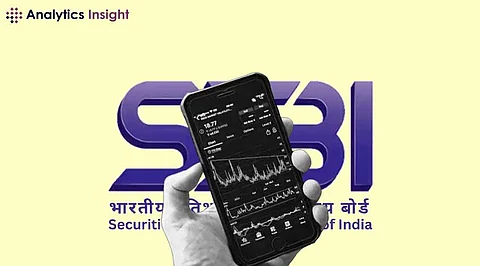

The Securities and Exchange Board of India (SEBI) established new regulations to manage algorithmic trading operations within the Indian market. The new regulatory measures intend to enhance existing investor protections by shutting down potential risks that have emerged through loopholes within current rules.
SEBI made this shift to new regulations because of increasing investor anxiety about inconsistent oversight in the speedily expanding sector. The new implementation rules specify stock exchanges as the enforcement agents, along with their requirement to establish panels of algorithmic trading providers. The implemented measures function to establish better management and responsibility across the trading framework.
The Indian market utilizes algorithmic trading that is algo trading through institutional as well as retail investors across the country. The past regulations proved inadequate for preventing new trading risks stemming from unregulated procedures. Through its latest framework, SEBI established a regulation that requires brokers to utilize empaneled algo trading providers only. Exchange standards must be checked by brokers who evaluate their empaneled trading provider services.
According to the newest guidelines exchanges must limit the usage of application programming interfaces (APIs) when algo trading takes place. SEBI declared that they will prohibit open APIs that offer uninhibited system access during trading operations. Unique vendor clients will function as access points to maintain traceability and identify products. The regulatory change from SEBI seeks to both protect investors better and block unauthorized system access instances.
All investors who create algorithms need to submit these programs to exchanges via their broker for registration purposes. Algorithms must maintain a maximum speed because they will operate under a fixed order-per-second threshold. The rule blocks traders from using their algorithms to create unstable market conditions through manipulative or unfair practices.
Currently, investors can authorize their closest relatives to access their registered algorithms when they want to conduct trading through the exchange registration system. Families involved in trading will benefit from this provision which simplifies access to shared tools and keeps their algorithms under SEBI modern monitoring regulations. SEBI implements these updates as part of its mission to preserve market fairness alongside market transparency and aid the regulation of financial market technological advancements.
The new rules specifically address black box algorithms which represent a set of trading algorithms maintaining undisclosed operations. The undisclosed algorithms operate as trading algorithms known as black boxes. SEBI requires developers of these algorithms to register them as Research Analysts before the regulatory body. The oversight process will improve because this requirement makes algorithm logic transparent to regulatory bodies.
The increased focus on fair practice by SEBI resulted in the implementation of black box trade algorithm regulations. The logic underpinning the trading strategies must be exposed to public view according to new requirements issued by SEBI which aims to stop market manipulation and trading advantages.
The ongoing modernization and regulatory work at SEBI contains this change as a main initiative. The Securities and Exchange Board of India remains dedicated to enforcing fair and transparent trading standards for all its market participants. The establishment of these rules will produce a more secure atmosphere which benefits individual and institutional investors.
